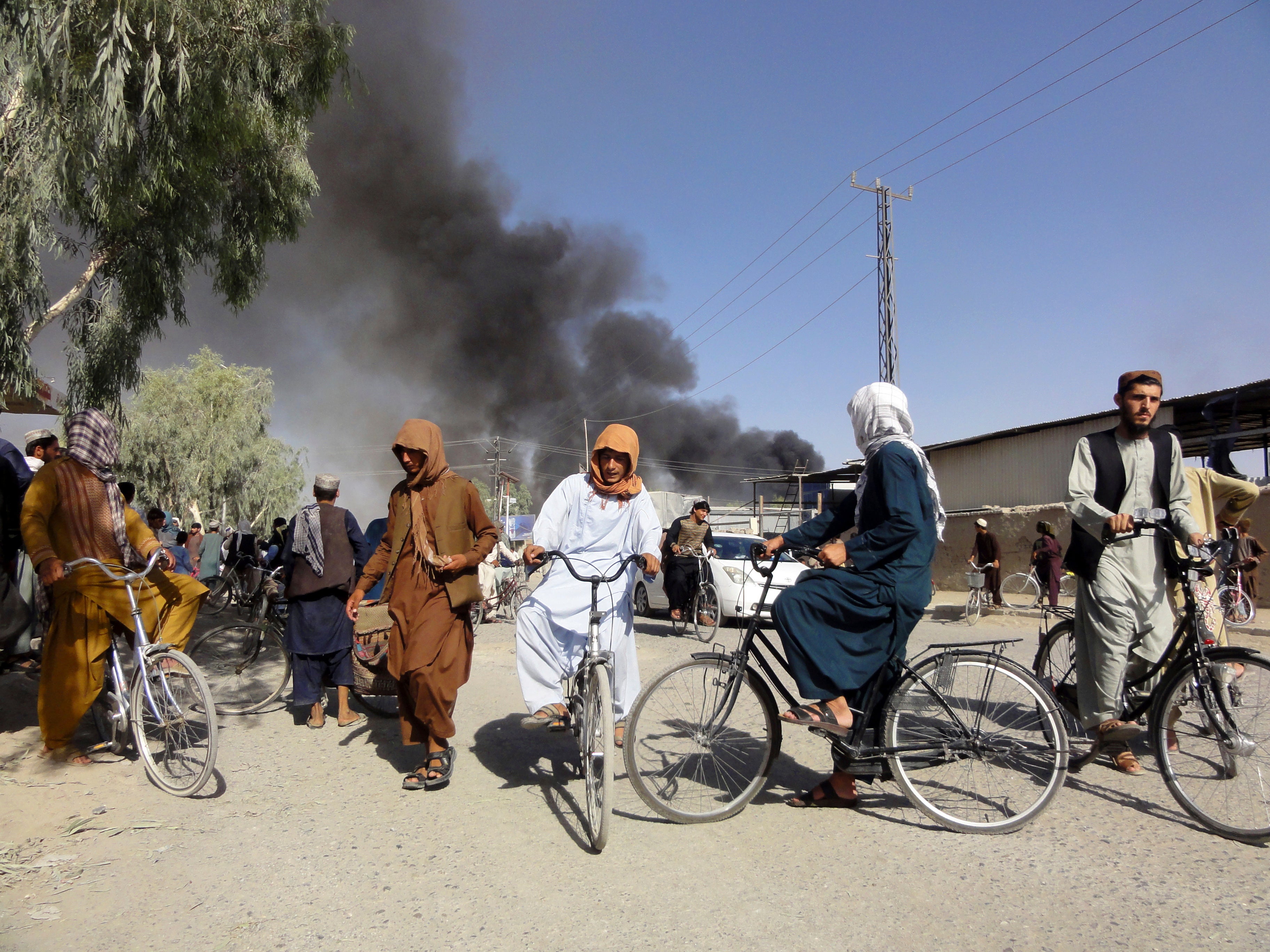Taliban take over radio station after capturing Afghan city
The Taliban seized a radio station in Kandahar and took to the airwaves Saturday after capturing much of southern Afghanistan

Your support helps us to tell the story
From reproductive rights to climate change to Big Tech, The Independent is on the ground when the story is developing. Whether it's investigating the financials of Elon Musk's pro-Trump PAC or producing our latest documentary, 'The A Word', which shines a light on the American women fighting for reproductive rights, we know how important it is to parse out the facts from the messaging.
At such a critical moment in US history, we need reporters on the ground. Your donation allows us to keep sending journalists to speak to both sides of the story.
The Independent is trusted by Americans across the entire political spectrum. And unlike many other quality news outlets, we choose not to lock Americans out of our reporting and analysis with paywalls. We believe quality journalism should be available to everyone, paid for by those who can afford it.
Your support makes all the difference.The Taliban seized a radio station in Kandahar and took to the airwaves Saturday after capturing much of southern Afghanistan in a rapid offensive that has raised fears of a full takeover less than three weeks before the U.S. is set to withdraw its last troops.
The Taliban have captured much of northern, western and southern Afghanistan in recent weeks, leaving the Western-backed government in control of a smattering of provinces in the center and east, as well as the capital, Kabul and the northern city of Mazar-i-Sharif.
The withdrawal of foreign forces and the swift retreat of Afghanistan's own troops — despite hundreds of billions of dollars in U.S. aid over the years — has raised fears the Taliban could return to power or the country could be plunged into civil war.
The first Marines from a contingent of 3,000 arrived on Friday to help partially evacuate the U.S. Embassy. The rest are set to arrive by Sunday, and their deployment has raised questions about whether the administration will meet its Aug. 31 withdrawal deadline.
The Taliban released a video in which an unnamed insurgent announced the takeover of the city's main radio station, which has been renamed the Voice of Sharia, or Islamic law. He said all employees were present and would broadcast news, political analysis and recitations of the Quran, the Islamic holy book. It appears the station will no longer play music.
It was not clear if the Taliban had purged the previous employees or allowed them to return to work. Most residents of Kandahar sport the traditional dress favored by the Taliban. The man in the video congratulated the people of Kandahar on the Taliban's victory.
The Taliban have operated mobile radio stations over the years, but have not operated a station inside a major city since they ruled the country from 1996-2001. At that time, they also ran a station called Voice of Sharia out of Kandahar, the birthplace of the militant group. Music was banned.
The U.S. invaded shortly after the 9/11 attacks, which al-Qaida planned and carried out while being sheltered by Taliban. After rapidly ousting the Taliban, the U.S. shifted toward nation-building, hoping to create a modern Afghan state after decades of war and unrest.
Earlier this year, President Joe Biden announced a timeline for the withdrawal of all U.S. troops by the end of August, pledging to end America's longest war. His predecessor, President Donald Trump had reached an agreement with the Taliban to pave the way for a U.S. pullout.
Biden's announcement set the latest offensive in motion. The Taliban, who have long controlled large parts of the Afghan countryside, moved quickly to seize provincial capitals, border crossings and other key infrastructure. They are now within 80 kilometers (50 miles) of Kabul.
Tens of thousands of Afghans have fled their homes, with many fearing a return to the Taliban's oppressive rule. The group had previously governed Afghanistan under a harsh version of Islamic law in which women were largely confined to the home.
___
Rahim reported from Istanbul and Krauss reported from Jerusalem.